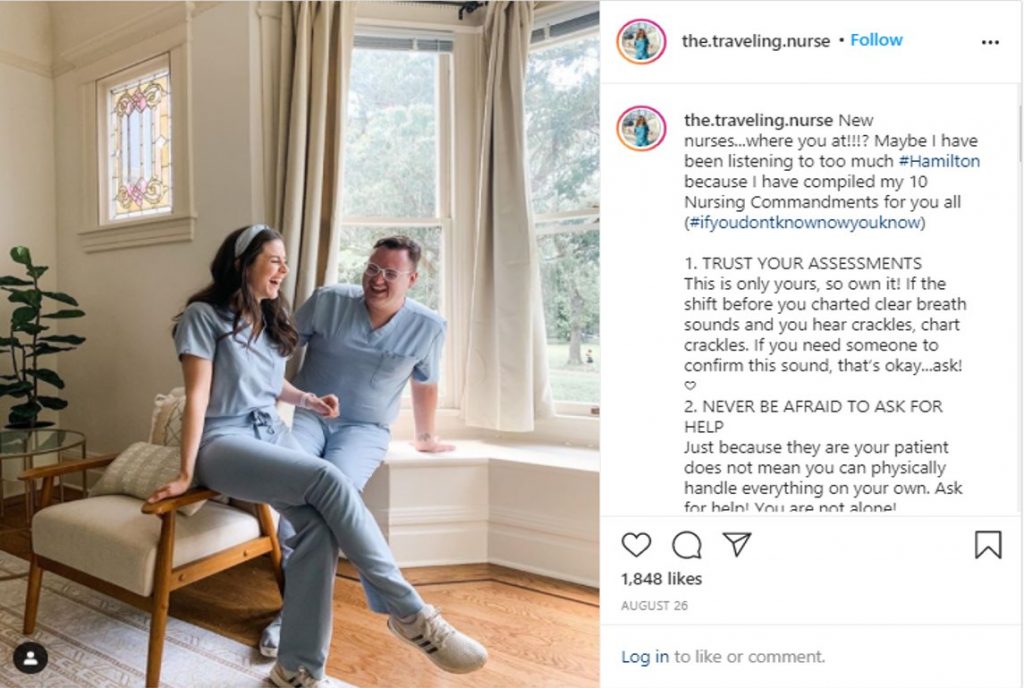Work-life balance? As a nurse?
What exactly is that supposed to be?
Sadly, that’s the reaction most nurses have when you ask them about maintaining work-life balance. As practitioners of a profession where you are literally meant to take care of people and bring them back to health, nurses are almost always naturally self-sacrificing individuals. Add that to the demands of the job itself, and consequently maintaining work-life balance drops low on the list of priorities for most nurses.
Unfortunately, this usually spells disasters. Though we often tend to forget this, nurses are indeed human. They might pull off Herculean tasks all day, but without taking time for themselves, they can burn out quickly and catastrophically.
Most nurses aren’t just handling anxious patients and worried patient families. They also have to deal with their own families, household chores, kids and, in the current global predicament, financial pressures resulting from the loss of their spouse or other family members’ jobs.
Since, nurses are socialised into a caretaker role, they instinctively put others’ needs before their own. It is quite common to see nurses neglect themselves and ignore the negative consequences of the stress, fatigue and isolation of their jobs. This takes a serious toll on their health and eventually their ability to do their job.
This article will run through a few steps nurses can take to ensure their physical and mental well-being even when working at their demanding and draining jobs.
- Create a Realistic Routine
With a job as demanding as nursing, self-care is not a natural part of day to day life. It is important to set aside a couple of hours each day to tend to oneself. This could include anything from cardio and protein shakes, tea and a good book to catching up with family or friends. Whatever the activity, it should help you recharge your mind and body. Consider practicing mindfulness for a psychological detox, and pair it with a few stretches to relax those cramped muscles.
Most importantly, leave work at work. Once you have created a routine dedicated to achieving work-life balance, STICK TO IT.

- Make Health a Major Priority
Your patients need you in peak condition, as do your family and loved ones. But most importantly, you need yourself to be in peak condition. Remember, you cannot pour out from a cup that is empty. To take care of others, you must be taken care of as well.
Do not let your diet and exercise regimes suffer because of work hours. Obviously, we understand that making garden fresh salads for every meal is not possible, and neither is getting in an hour of cardio.
Take weekends to work on meal preps, take a homemade lunch (and if possible, evening snacks) to work and try to stay away from processed junk, especially soda. Since the job demands that you stay on your feet, try to get in 10000 steps a day (or close.) Try to drink sufficient water. Consult a doctor (you should know plenty of them) and see if you can start taking supplements to make up for any nutritional deficiencies that may occur from irregular meals, mealtimes or other job-related pressures.

- Delegate and Start Saying NO
You cannot do everything yourself, and despite what your job training tells you, you are not supposed to. Start delegating your duties. Ask your spouse or sibling or even an adult child to help with grocery shopping or laundry or household chores. Get things delivered once a week so that no one has to trudge to stores multiple times. You don’t have to cook everyday; either prep meals in the weekend or take turns cooking with other members of your family.
At work or at home, learn to say no within reason. Don’t feel guilty for turning down extra shifts or projects because you need the rest. Openly communicate with your family about your need for time with them, as well as time by yourself. To rejuvenate yourself, be honest with yourself about what you really need and consciously make attempts to include that into your life.
- Develop a Workplace Support System
Establish supportive relationships with your coworkers so that will cover for you, if needed. For example, once in a while you may need someone to cover your shifts so that you can take time off or attend to an emergency. Sustaining pleasant, professional relationships at work also help to maintain a peaceful and cooperative work environment, which in turn contributes to lower levels of stress and conflict.

- Take Moments of Rest at Work
When you’re a nurse, every day is a busy day. Despite that, remember that your physical and mental health won’t hold up too long if you do not take time to breathe, even if for a few minutes. Try to grab a coffee with a co-worker or maybe listen to a quick BTS song (if you’re a fan) when you’re done with some of your tasks. Essentially, give your mind the chance to unwind not just after, but during the workday. Work in these little breaks so that you do not crash and burn the minute you sign out of work.

- Deal with Conflict Immediately
Whether personal or professional, do not let conflicts magnify into creating long-lasting consequences. Engaging in the necessary conversation may seem awkward or difficult, but it will serve you in the future by resolving the conflict before it can breed resentment and ill-will. Be honest and forthcoming about your concerns. If you are indeed in the wrong, apologise. Try not to take conflicts home with you, if that is possible. Remember that a harmonious workplace is essential to maintaining work-life balance.
Since Registered Nurses (RNs) are educated to be self-sufficient professionals, they often assume they can handle everything on their own. But it is impossible for one person to be everything to everyone all of the time; nurses can and should turn to family, friends and colleagues for support. No matter how pressured you feel to handle everything yourself, do not lose sight of the fact that you are more than your job.
—
As a nurse, you are one of the most important contributors to a stable and healthy society. This grave responsibility has a way of overwhelming any individual concerns, but such an occurrence must be resisted. Without work-life balance, nurses cannot survive in a constantly demanding and draining profession. Invest in your health and sanity because your patients need you not just now, but for the long-term.
“Written by Shreya Bose”



